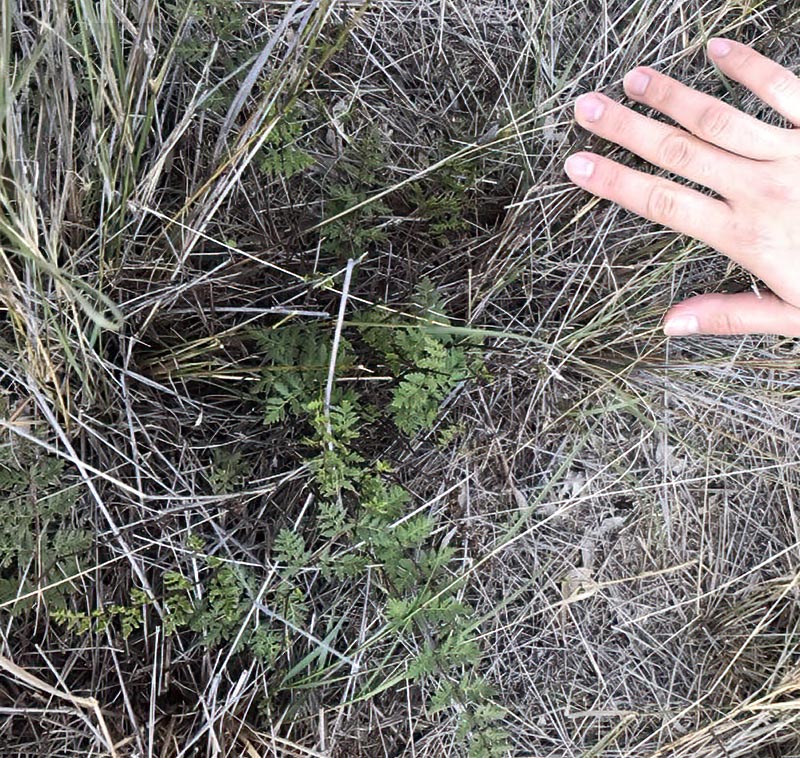

NEWS THAT MATTERS
Rock fern causing toxicity in cattle
Local Land Services is urging livestock owners on the Central Coast to be on the lookout for rock fern in their grazing paddocks, which can cause toxicity.

19 July 2023
ROCK fern is a hardy plant that survives dry conditions and reshoots readily after rain and is most toxic when new fronds are reshooting or growing which occurs during the autumn and winter.
Containing the toxin ‘ptaquiloside’, rock fern depresses bone marrow production of platelets and white blood cells in cattle, reducing the affected animal’s immune system and causing bleeding.
District Veterinarian - North West Local Land Services, Dr Judy Ellemsaid we have had a few cases of deaths in young cattle over the past few weeks in the Gunnedah district.
“These deaths are suspected to be caused by rock fern toxicity. Unfortunately, in most cases there has been multiple deaths,” said Dr Ellem.
“It takes two to four weeks before the effects of the toxin are seen in the animal, with recent affected animals being found dead in their paddocks. They have had blood from the nose and, or the anus.”
Landholders are asked to keep a close eye on their cattle and watch out for symptoms. Cattle that are affected by the toxin will be off colour, out on their own, and they may have a fever, or other signs of infection. They may have blood in their faeces, dark wine-coloured urine, or a nasal discharge.
Other signs can include heavy breathing, demonstrating weakness and swaying when walking. If examined closely there maybe spot bleeding in their mouth, gums, or eyes.
Sheep are also affected by rock fern, however, are more susceptible to a different toxin, ‘thiaminase’, which destroys vitamin B1 or thiamine in the rumen. A lack of vitamin B1 damages the brain which results in a condition known as polio encephalomalacia or PEM.
“Sheep can be found dead, or they may be out on their own, appear blind, run into fences, or press against obstacles. They sometimes exhibit a syndrome called ‘stargazing’ where they have their head pointed upwards, or they may froth at the mouth and possibly seizure,” said Dr Ellem.
Horses are also susceptible to thiaminase toxicity, and can be seen to go off their food, become uncoordinated, they may carry their head low, be head nodding, ear twitching, yawning, and can also become excitable. Like sheep, they may also appear blind.
“Sheep and horses that are affected by the thiaminase can be treated with thiamine if found early enough,” she said.
“I would urge producers to check their paddocks and remove livestock from paddocks where rock fern is growing, to reduce the risks of toxicity in livestock”.
If you have deaths or signs of toxicity in your livestock, please call your veterinarian for treatment and advice.


SUBSCRIBE FOR FREE to the Grapevine News Online and to the monthly e-book edition of the Grapevine Community News. You will receive an email notification every time a news story goes live, keeping you up to date with what is happening in your community.
Our online news platform and monthly newspaper is about real local news and events. We will not spam you or share your details with third parties.








%20advert.jpg?crc=3763325189)









